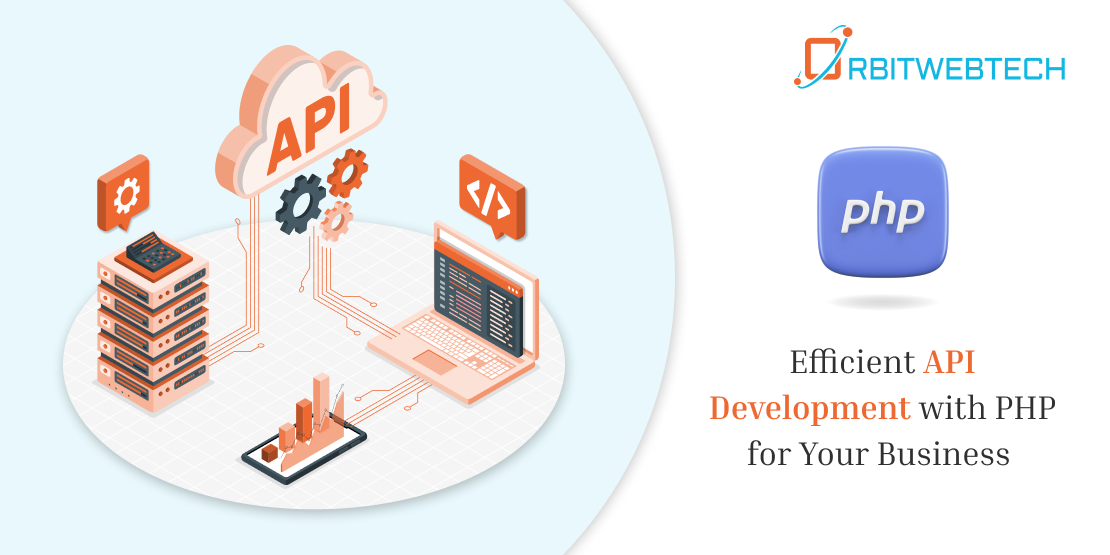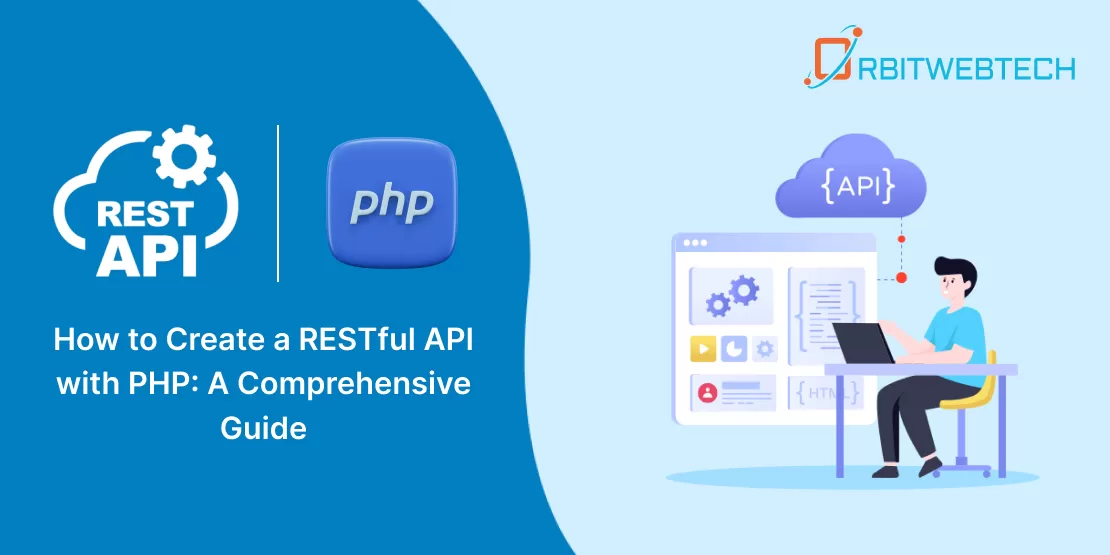
In the digital era, Application Programming Interfaces (APIs) are the backbone of modern web applications, connecting various software systems to exchange data and enhance functionality. PHP, a powerful scripting language, remains a popular choice for enterprises looking to create strong and scalable APIs. Whether it’s building APIs for e-commerce platforms, mobile apps, or cloud-based solutions, PHP offers a flexible framework to meet diverse needs. If you’re looking to streamline your business operations with custom APIs, now is the time to hire PHP developers who specialize in API development using PHP and RESTful services.
Understanding APIs and Their Role in Business
APIs are essential tools that enable software systems to communicate with each other seamlessly. They allow different applications to interact, share data, and perform complex tasks without direct human intervention. In business, Business APIs are essential because they:
- Facilitating automation: APIs help automate repetitive tasks, freeing up time for employees to focus on strategic initiatives.
- Enhancing integration: Businesses can easily integrate third-party services, such as payment gateways, shipping solutions, and marketing platforms, using APIs.
- Expanding functionality: APIs provide the flexibility to add new features to existing systems without overhauling the entire infrastructure.
For businesses aiming to build efficient, scalable solutions, PHP and REST APIs offer a reliable and secure platform for API development. In the next sections, we’ll explore how PHP can be leveraged to create powerful APIs tailored to your business needs.
Why PHP is Ideal for API Development
PHP has been a dominant player in web development for decades, known for its simplicity, flexibility, and ability to handle large-scale applications. Its advantages make it an ideal choice for API development:
- Cross-Platform Compatibility: PHP runs seamlessly across different platforms, including Windows, Linux, and macOS. This versatility ensures that your API can be used across multiple environments.
- Support for RESTful Services: REST (Representational State Transfer) is a popular architectural paradigm for developing APIs. PHP REST API frameworks allow developers to create efficient and lightweight APIs that can handle large volumes of requests with ease.
- Scalability and Performance: PHP’s ability to handle high-traffic websites like Facebook and WordPress makes it a suitable choice for businesses with scalability concerns. As your user base grows, a well-designed PHP API can handle increasing workloads without compromising performance.
- Extensive Community and Resources: PHP has a large developer community, which provides a plethora of tools, tutorials, and libraries that help speed up the development process. This community support makes troubleshooting and upgrading your API easier.
- Cost-Effective Development: PHP is open-source, meaning there are no licensing fees. Additionally, it integrates well with various databases, including MySQL and PostgreSQL, which are also free and open-source.
Key Components of Building a PHP REST API
Building an API is not just about coding but understanding the architecture and components that make it efficient. When creating a PHP REST API, certain best practices and components ensure that the API is both functional and scalable:
- RESTful Architecture: REST APIs are based on a set of principles that ensure simplicity, scalability, and ease of use. This includes using standard HTTP methods like GET, POST, PUT, and DELETE, which correspond to reading, creating, updating, and deleting resources.
- Endpoints: Endpoints are the URLs through which the API interacts with other applications. Clear, descriptive endpoints enhance the user experience and make the API easier to use.
- Authentication and Security: Security is critical in API development. To protect your business data, PHP allows for robust authentication mechanisms such as OAuth 2.0, API keys, and JSON Web Tokens (JWT). Encryption methods like SSL/TLS should be implemented to ensure secure data transmission.
- Data Formatting: APIs must handle data in standard formats such as JSON or XML. JSON is widely preferred due to its lightweight structure and easy integration with various platforms. When building APIs using PHP, developers often use JSON to facilitate communication between the server and the client.
- Error Handling: Proper error handling and clear response messages are essential for debugging and improving the user experience. PHP provides various ways to handle errors efficiently, ensuring that the API remains functional even in the event of a failure.
- Versioning: Version control in APIs is crucial, especially when adding new features or making changes. PHP-based APIs can be easily versioned, ensuring backward compatibility while introducing new functionalities
Best Practices for Efficient PHP API Development
Developing an API is a complex process that requires attention to detail, security, and performance. Here are some best practices for PHP and REST API development:
- Use a Framework: PHP has several frameworks, such as Laravel, Symfony, and Slim, that simplify API development. These frameworks come with built-in tools for routing, validation, and error handling, speeding up the development process.
- Optimize Database Queries: Inefficient database queries can slow down your API. Use indexing, caching, and query optimization techniques to ensure that your API can handle large volumes of data quickly.
- Implement Caching: Caching is essential to improve the performance of your API, especially if it handles multiple requests for the same data. Tools like Memcached or Redis can be integrated with PHP to store frequently accessed data in memory, reducing server load.
- Rate Limiting: Rate limiting helps prevent abuse and ensures that the API performs well under heavy loads. PHP allows developers to implement rate-limiting mechanisms that restrict the number of requests a client can make in a given time frame.
- Comprehensive Documentation: Well-documented APIs are easier to use and maintain. Include clear documentation on endpoints, request parameters, and response formats so that developers can integrate the API seamlessly.
Use Cases of PHP APIs in Business
Many industries rely on APIs to streamline their operations and enhance customer experience. Here are some common use cases where PHP REST APIs are invaluable:
- E-commerce Integration: APIs are used to connect payment gateways, inventory systems, and shipping solutions to e-commerce platforms, ensuring smooth transactions and real-time data synchronization.
- Mobile App Development: Mobile apps often rely on APIs to fetch data from a server. PHP-based APIs are efficient in providing the necessary backend support for mobile applications, ensuring fast and reliable data retrieval.
- Social Media Integration: Businesses use APIs to integrate social media functionalities such as login authentication and sharing features. PHP APIs make it easier to interact with social platforms like Facebook, Twitter, and LinkedIn.
- CRM and ERP Systems: Many businesses rely on APIs to integrate their Customer Relationship Management (CRM) or Enterprise Resource Planning (ERP) systems with other platforms, automating workflows and improving data management.
Empower Your Business with Efficient PHP APIs
In the ever-evolving landscape of web development, building APIs that are scalable, secure, and efficient is crucial for business success. PHP, with its flexibility and robust frameworks, offers the perfect foundation for creating APIs that meet your business’s unique needs. Whether you’re integrating third-party services, building mobile apps, or enhancing your e-commerce platform, PHP REST APIs provide a reliable solution for connecting different systems.
Orbitwebtech, the best web development company, is your trusted partner in achieving this. With a team of expert PHP developers, we specialize in custom API development designed to take your business to the next level. Let us help you build innovative, scalable solutions tailored to your vision.

